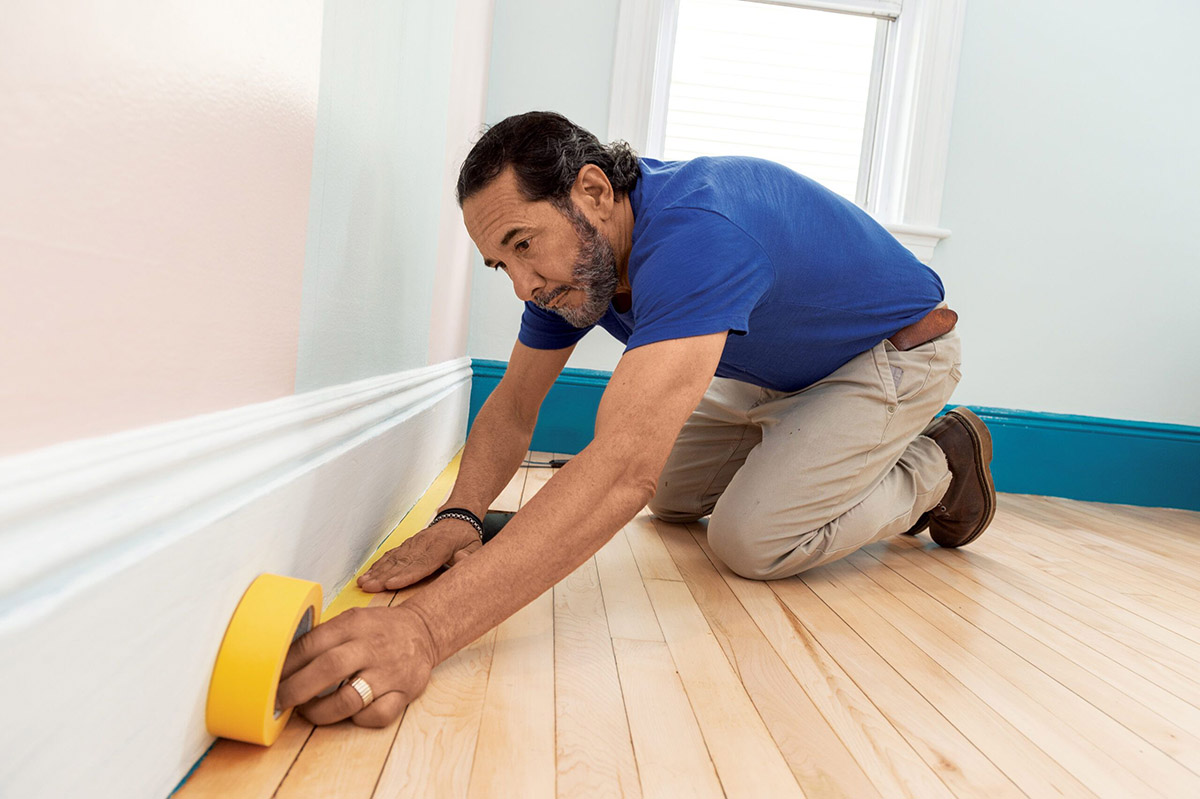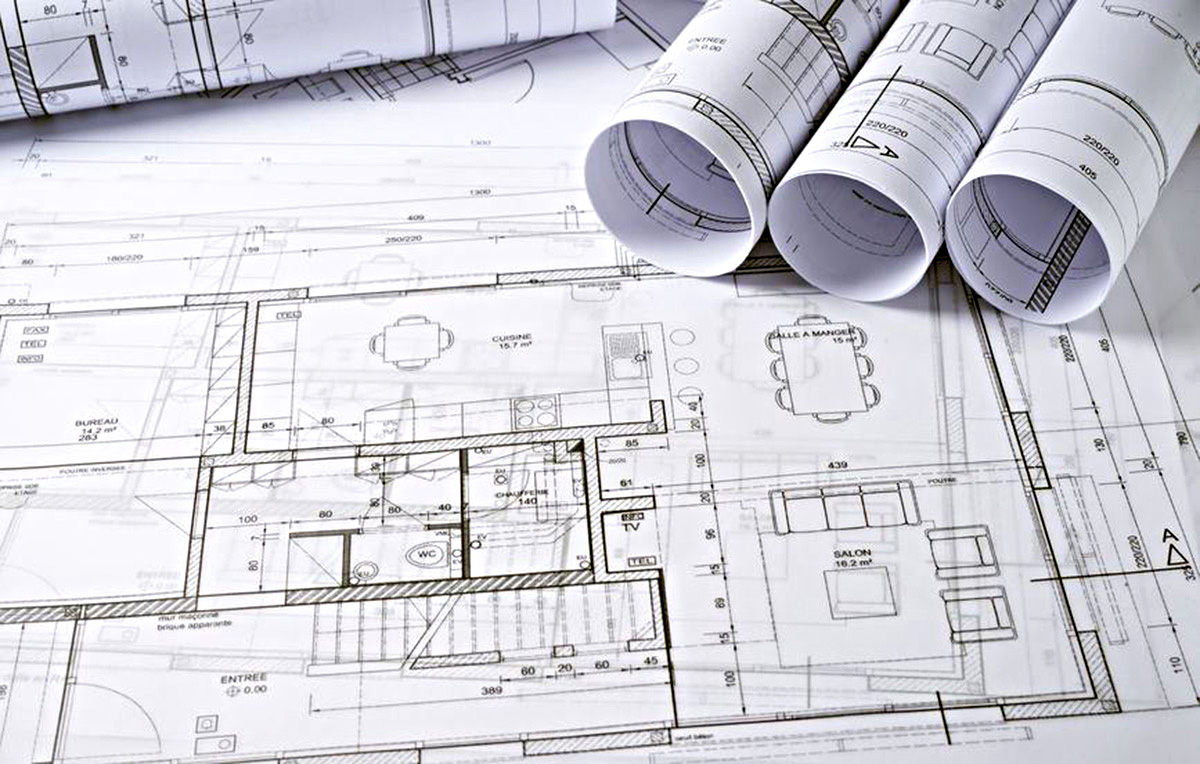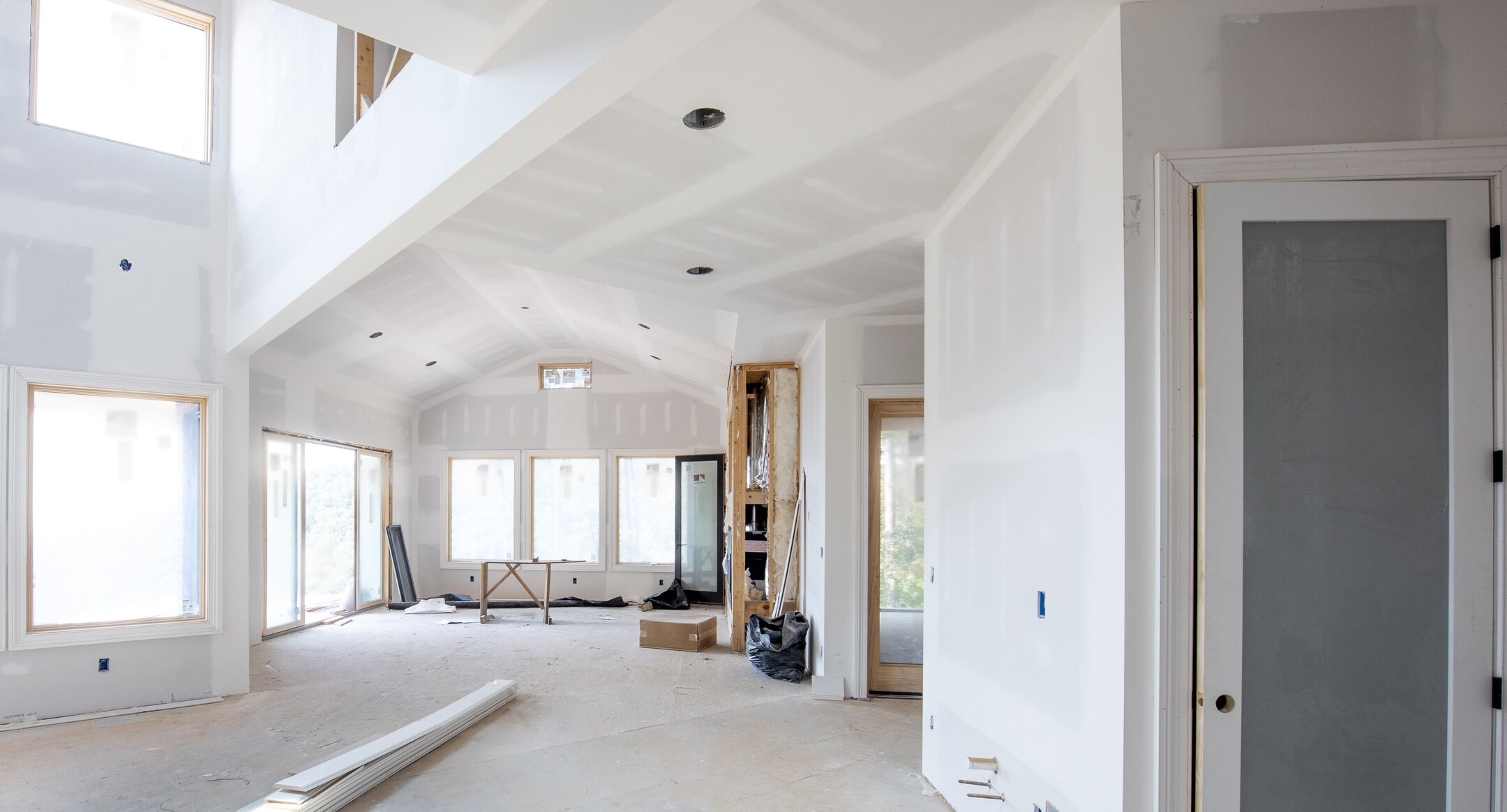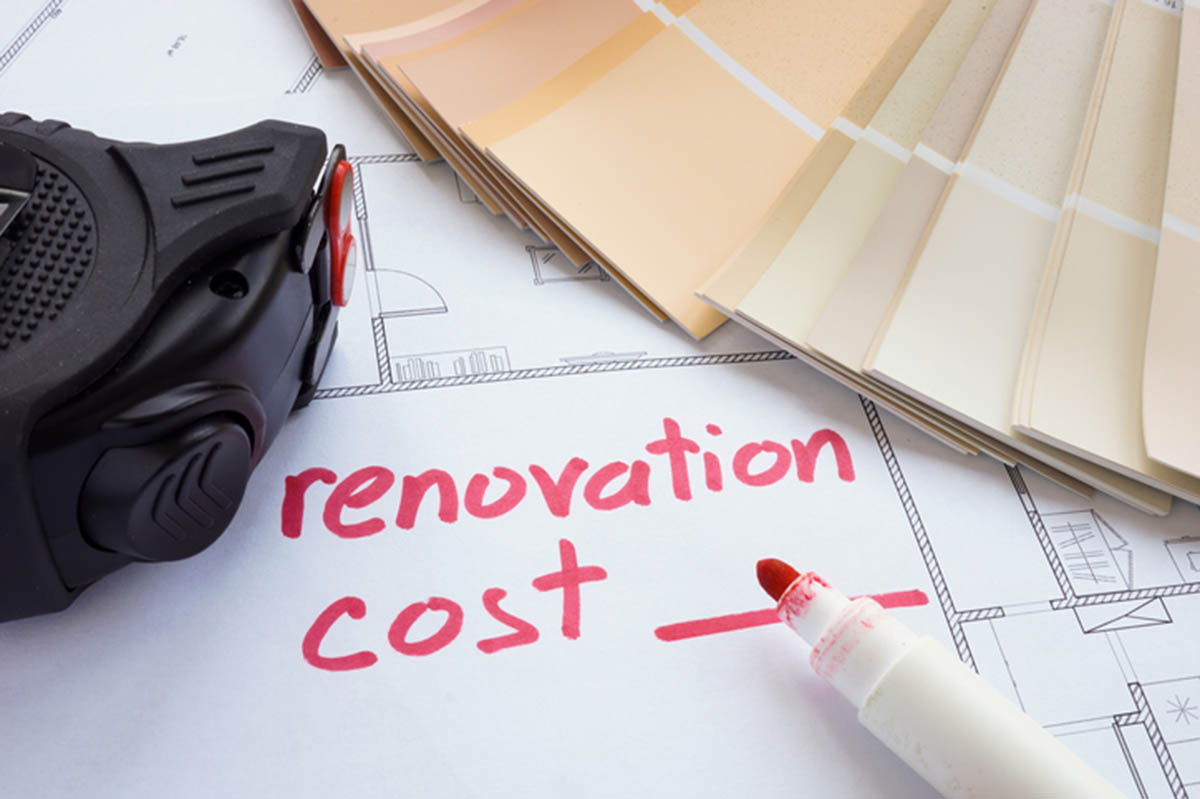Home>Renovation & DIY>Home Renovation Guides>What Is The Normal Cost For Home Improvement Work Needed


Home Renovation Guides
What Is The Normal Cost For Home Improvement Work Needed
Modified: January 9, 2024
Get expert guidance on home renovation costs. Find out the normal cost for home improvement work needed. Explore our comprehensive home renovation guides now!
(Many of the links in this article redirect to a specific reviewed product. Your purchase of these products through affiliate links helps to generate commission for Storables.com, at no extra cost. Learn more)
Introduction
So, you've decided it's time to spruce up your living space. Whether it's a long-overdue bathroom renovation, a kitchen overhaul, or a backyard transformation, home improvement projects can breathe new life into your home while increasing its value. However, before diving into the world of home renovation, it's essential to understand the costs associated with such endeavors. From materials and labor to unforeseen expenses, home improvement costs can quickly add up, making it crucial to approach these projects with careful planning and budgeting in mind.
In this comprehensive guide, we'll explore the various factors that influence the cost of home improvement projects, delve into the expenses associated with common renovation endeavors, discuss the pros and cons of hiring contractors versus taking the do-it-yourself (DIY) route, and provide insights on how to effectively budget for your home improvement ventures. Whether you're a first-time homeowner or a seasoned DIY enthusiast, this guide aims to equip you with the knowledge and understanding needed to navigate the world of home improvement costs with confidence.
So, let's roll up our sleeves and embark on this insightful journey into the realm of home renovation expenses, empowering you to make informed decisions and turn your renovation dreams into a tangible, budget-friendly reality.
Key Takeaways:
- Renovating your home can be costly. Consider the scope of the project, materials, labor, permits, and unexpected expenses to budget effectively and make informed decisions.
- When deciding between hiring contractors or DIY, weigh the benefits of expertise and time efficiency against potential cost savings and personal satisfaction. Plan your budget strategically to manage expenses and explore financing options.
Read more: What Home Improvements Need A Permit?
Factors Affecting Home Improvement Costs
When it comes to home improvement projects, several factors can significantly impact the overall cost. Understanding these factors is crucial for effectively planning and budgeting your renovation endeavors. Here are the key elements that can influence home improvement costs:
- Scope of the Project: The scale and complexity of the renovation play a pivotal role in determining the overall cost. Whether it’s a minor cosmetic upgrade or a full-scale structural remodel, the scope of the project directly correlates with the expenses involved.
- Materials and Quality: The choice of materials, their quality, and brand can have a substantial impact on the total cost. Opting for high-end, premium materials will naturally drive up expenses, while more budget-friendly alternatives can help keep costs in check.
- Labor Costs: Hiring professionals for construction, plumbing, electrical work, and other specialized tasks adds to the overall expenditure. Skilled labor comes at a price, and it’s essential to factor in labor costs when budgeting for your home improvement project.
- Permits and Regulations: Depending on the nature of the renovation, you may need to acquire permits from local authorities. These permits often come with associated fees, and failure to comply with building regulations can result in costly setbacks.
- Unforeseen Issues: Renovation projects can unearth unexpected challenges, such as hidden structural damage, outdated wiring, or plumbing issues. Dealing with these unforeseen issues can lead to additional expenses, so it’s wise to set aside a contingency budget for such surprises.
- Location: The geographical location of your property can impact renovation costs. Factors such as local building codes, accessibility of materials, and regional labor rates all contribute to the overall expenses of home improvement projects.
- Timeframe: The timeline for completing the renovation can affect costs. Rushed projects may require additional resources and manpower, potentially driving up expenses. Conversely, a longer, more flexible timeline can offer cost-saving opportunities.
By considering these influential factors, you can gain a clearer understanding of the financial implications associated with your home improvement project. This insight will empower you to make informed decisions, effectively allocate your budget, and navigate the renovation process with confidence.
Common Home Improvement Projects and Their Costs
Home improvement projects come in all shapes and sizes, each with its own set of costs and considerations. Whether you’re looking to revamp your interior spaces or enhance your property’s exterior, here are some common renovation endeavors and their associated costs:
- Kitchen Remodel: Renovating a kitchen involves expenses such as cabinetry, countertops, appliances, flooring, and labor. The cost can vary widely based on the quality of materials and the extent of the renovation, but a mid-range kitchen remodel typically ranges from $15,000 to $30,000, while a high-end overhaul can surpass $60,000.
- Bathroom Renovation: Upgrading a bathroom often entails costs for fixtures, tiling, plumbing, and labor. A moderate bathroom remodel may range from $10,000 to $20,000, while a more luxurious renovation with custom features can exceed $40,000.
- Roof Replacement: Replacing a roof is a significant investment, with costs varying based on the roofing material, the size of the roof, and labor expenses. On average, a new roof can cost between $5,000 and $10,000, but this figure can be higher for premium materials or complex roof designs.
- Deck or Patio Addition: Adding outdoor living spaces involves expenses for materials, labor, and possibly permits. A basic deck or patio addition can range from $2,000 to $7,000, while larger, custom-designed outdoor living areas can exceed $15,000.
- Interior Painting: Refreshing interior paint can breathe new life into your home. The cost varies based on the square footage, paint quality, and labor. On average, professional interior painting can cost between $1,000 and $3,000 for multiple rooms.
- Flooring Replacement: Upgrading flooring, whether with hardwood, laminate, tile, or carpet, incurs costs for materials and installation. The price range for flooring replacement is broad, with basic upgrades starting at $1,500 and more extensive projects exceeding $10,000 for larger areas or premium materials.
These are just a few examples of common home improvement projects, each with its own cost range based on various factors. Keep in mind that these figures are estimates, and actual costs can fluctuate based on your location, the scope of the project, and your specific preferences regarding materials and finishes.
By understanding the typical costs associated with these projects, you can begin to gauge the financial investment required for your desired renovations, allowing you to plan your budget accordingly and make informed decisions about the scope and scale of your home improvement endeavors.
Get multiple quotes from different contractors to compare costs for home improvement work. Research average prices for the specific project to ensure you are getting a fair price.
Hiring Contractors vs. DIY
One of the key decisions to make when embarking on a home improvement project is whether to hire professional contractors or tackle the endeavor as a do-it-yourself (DIY) initiative. Both approaches have their merits and considerations, each impacting the overall cost and outcome of the renovation. Let’s explore the pros and cons of hiring contractors versus DIY:
- Hiring Contractors:
- Professional Expertise: Contractors bring specialized skills and experience to the table, ensuring high-quality workmanship and adherence to building codes and regulations.
- Time Efficiency: Professionals can complete the project more swiftly, minimizing disruptions to your daily routine.
- Warranty and Guarantees: Many contractors offer warranties on their work, providing added peace of mind regarding the quality and longevity of the renovation.
- Higher Costs: Hiring contractors typically involves higher upfront costs due to labor expenses and profit margins. However, the expertise and efficiency they bring may offset these expenses in the long run.
- DIY Approach:
- Cost Savings: Taking the DIY route can result in significant cost savings, as you can avoid labor fees and potentially lower material costs through hands-on sourcing and installation.
- Personal Satisfaction: Completing a renovation project on your own can be immensely fulfilling, providing a sense of accomplishment and pride in the finished result.
- Learning Curve: DIY projects require a learning curve, and mistakes can lead to additional expenses to rectify errors. It’s essential to assess your skills and comfort level with the tasks involved.
- Time and Effort: DIY projects demand a substantial investment of time and effort, and the timeline for completion may be longer compared to hiring professionals.
Ultimately, the decision to hire contractors or pursue a DIY approach hinges on factors such as your budget, the complexity of the project, your skill set, and your personal preferences. In some cases, a hybrid approach, where you handle certain aspects of the renovation while hiring professionals for specialized tasks, can offer a balanced solution.
By carefully weighing the pros and cons of each approach and considering the specific requirements of your project, you can make an informed decision that aligns with your budget and vision for the renovation, ensuring a successful and cost-effective outcome.
Budgeting for Home Improvement
Effective budgeting is a cornerstone of successful home improvement projects, allowing you to manage expenses, prioritize expenditures, and avoid financial strain throughout the renovation process. Here are essential tips for strategically budgeting your home improvement endeavors:
- Evaluate Your Finances: Begin by assessing your overall financial situation and determining how much you can realistically allocate to the renovation. Consider your savings, available credit, and any potential financing options.
- Research Project Costs: Research the typical costs associated with your desired renovation projects, taking into account materials, labor, permits, and any unforeseen expenses. Obtain multiple quotes from contractors to gain a comprehensive understanding of the potential expenditures.
- Establish Priorities: Determine the key areas of focus for your home improvement, whether it’s a specific room, exterior upgrades, or essential repairs. Prioritize the most critical aspects of the renovation to allocate your budget effectively.
- Set a Contingency Fund: It’s wise to set aside a contingency budget, typically around 10-20% of the total project cost, to account for unexpected expenses or changes to the original plan.
- Explore Cost-Saving Opportunities: Look for ways to reduce costs without sacrificing quality. This may involve sourcing materials from discount outlets, considering mid-range alternatives for fixtures and finishes, or taking on certain tasks as DIY projects.
- Consider Financing Options: If your renovation project exceeds your immediate budget, explore financing options such as home improvement loans, lines of credit, or refinancing your mortgage. Compare the terms and interest rates to find the most suitable option for your needs.
- Track Expenses Diligently: Throughout the renovation, keep meticulous records of all expenses, including materials, labor, permits, and any additional costs. This level of detail will help you stay within budget and identify any areas where adjustments may be necessary.
- Review and Adjust as Needed: Regularly review your budget and assess the progress of the renovation. Be prepared to make adjustments if unexpected expenses arise or if certain aspects of the project prove to be more costly than anticipated.
By approaching your home improvement budget with thorough research, careful planning, and a proactive mindset, you can navigate the financial aspects of the renovation with confidence and prudence. Effective budgeting not only ensures that your project stays within financial bounds but also allows you to make informed decisions that align with your long-term financial goals.
Read more: What Do You Need For Home Improvements?
Conclusion
Embarking on a home improvement journey is an exciting endeavor that holds the promise of enhancing your living space and increasing the value of your property. However, navigating the realm of home renovation costs requires careful consideration, strategic planning, and a comprehensive understanding of the financial implications involved. By delving into the factors that influence home improvement costs, exploring the expenses associated with common renovation projects, weighing the pros and cons of hiring contractors versus DIY, and implementing effective budgeting strategies, you can embark on your renovation endeavors with confidence and financial prudence.
Understanding the influential factors that impact home improvement costs, such as the scope of the project, choice of materials, labor expenses, permits, and unforeseen challenges, empowers you to make informed decisions and allocate your budget effectively. Whether you’re envisioning a kitchen remodel, a bathroom renovation, or outdoor enhancements, having a clear grasp of the typical costs associated with these projects allows you to plan and prioritize your renovation goals accordingly.
When considering whether to hire professional contractors or take a DIY approach, it’s essential to weigh the advantages of expertise and time efficiency against the potential cost savings and personal satisfaction that come with hands-on involvement. By carefully evaluating your skills, the complexity of the project, and your budget, you can determine the most suitable approach for your renovation endeavors.
Strategic budgeting serves as a linchpin for successful home improvement projects, enabling you to manage expenses, explore cost-saving opportunities, and navigate potential financing options. By evaluating your finances, setting priorities, establishing a contingency fund, and tracking expenses diligently, you can ensure that your renovation stays within budget while achieving your desired outcomes.
As you embark on your home improvement journey, may this guide equip you with the knowledge and insights needed to navigate the financial aspects of renovation with confidence and prudence. By approaching your projects with careful planning, informed decision-making, and a proactive mindset, you can transform your renovation dreams into a tangible, budget-friendly reality, enhancing your living space and creating a home that reflects your vision and lifestyle.
Frequently Asked Questions about What Is The Normal Cost For Home Improvement Work Needed
Was this page helpful?
At Storables.com, we guarantee accurate and reliable information. Our content, validated by Expert Board Contributors, is crafted following stringent Editorial Policies. We're committed to providing you with well-researched, expert-backed insights for all your informational needs.















0 thoughts on “What Is The Normal Cost For Home Improvement Work Needed”